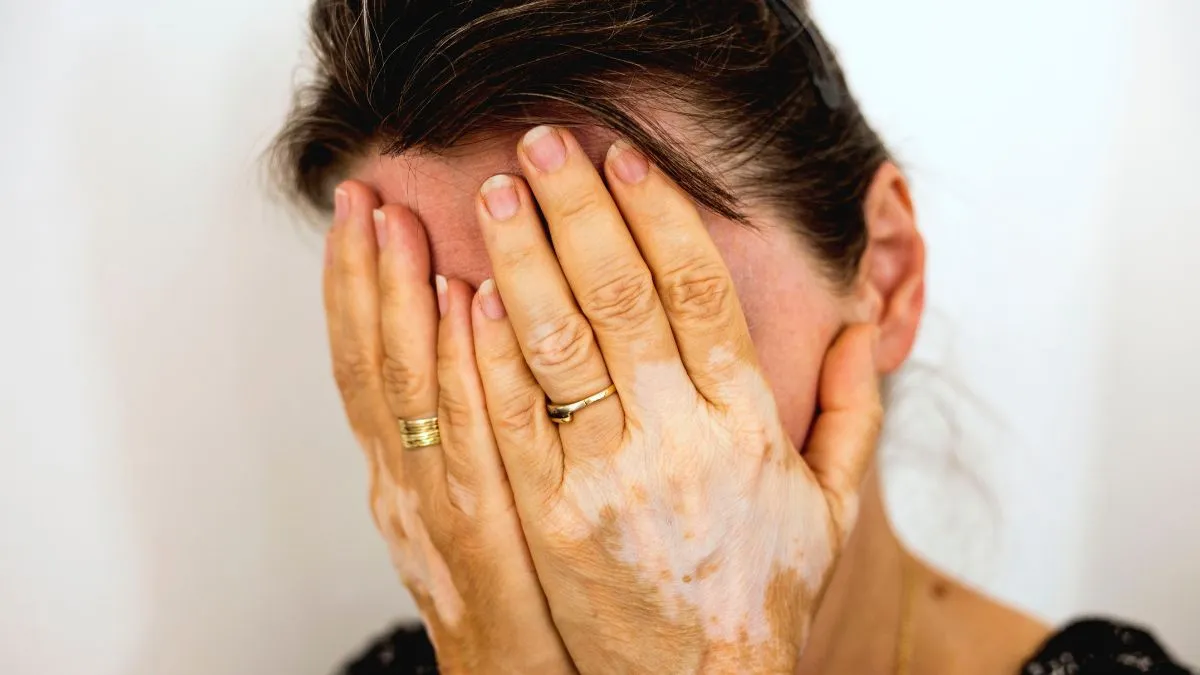- By Iram Hussain
- Wed, 25 Jun 2025 05:26 PM (IST)
- Source:JND
Every year on 25 June, World Vitiligo Day reminds us of the pressing need to spread awareness about a skin condition that’s often misunderstood vitiligo. Characterised by white patches on the skin, vitiligo is surrounded by many myths and misconceptions, the most common being: Is vitiligo contagious or infectious?
In a conversation with Jagran English, Dr. Meenu Malik, Dermatology, Venereology and Leprology, Aakash Healthcare busted the common myths about vitiligo.
Myth: Vitiligo Is NOT contagious
Experts clarify that vitiligo is neither contagious nor infectious. It cannot be spread from person to person through touch, sharing food or physical contact.
Dr. Meenu Malik explains, “Vitiligo is an autoimmune condition where the body’s immune system mistakenly attacks its own pigment-producing cells (melanocytes). It has nothing to do with infections or poor hygiene and it is not at all contagious.”
Despite this, social stigma persists often leading to isolation and discrimination in schools, jobs and even marriage prospects.
ALSO READ: Vijay Varma Opens Up On Suffering From Vitiligo; Admits Covering It Up For Movies
What Causes Vitiligo?
While the exact cause is still being studied, vitiligo is believed to be the result of a combination of genetic, autoimmune and environmental factors. Certain genes like NLRP1, HLA, and TYR have been linked to vitiligo and researchers are now exploring targeted gene-based treatments.
Emotional stress, skin trauma and family history can increase the risk but it’s not caused by eating certain foods or coming in contact with affected individuals another popular myth.
Treatment Options Available In India
Though there is no permanent cure yet, early diagnosis and regular treatment can control the spread and even restore pigmentation in many cases.
Here are some effective options-
Topical Treatments- Steroid creams and Tacrolimus ointments are prescribed for early or mild cases.
Phototherapy (Narrowband UVB)- A commonly used treatment that stimulates melanocyte activity.
Surgical Options- In stable cases, melanocyte transplant or skin grafting can help restore colour.
New Advancements- JAK inhibitors like Ruxolitinib (Opzelura) have shown promise in re-pigmentation and are already approved in the U.S. India is expected to follow soon.
ALSO READ: World Vitiligo Day 2025: Doctor Explains Vitiligo, Health Tips, Treatment Options And More
Health Tips For Managing Vitiligo
Use Sunscreen- Protect depigmented areas from sunburn and UV damage.
Balanced Diet- Include foods rich in Vitamin B12, D, Zinc and Copper.
Manage Stress: Yoga and mindfulness can help reduce flare-ups.
Avoid self-medication- Always consult a certified dermatologist.
Stay Confident- Vitiligo does not define your worth or capability.
Dr. Malik added, “One of the biggest challenges patients face is not the disease itself but the social rejection. Education and empathy are the real treatments our society needs.
